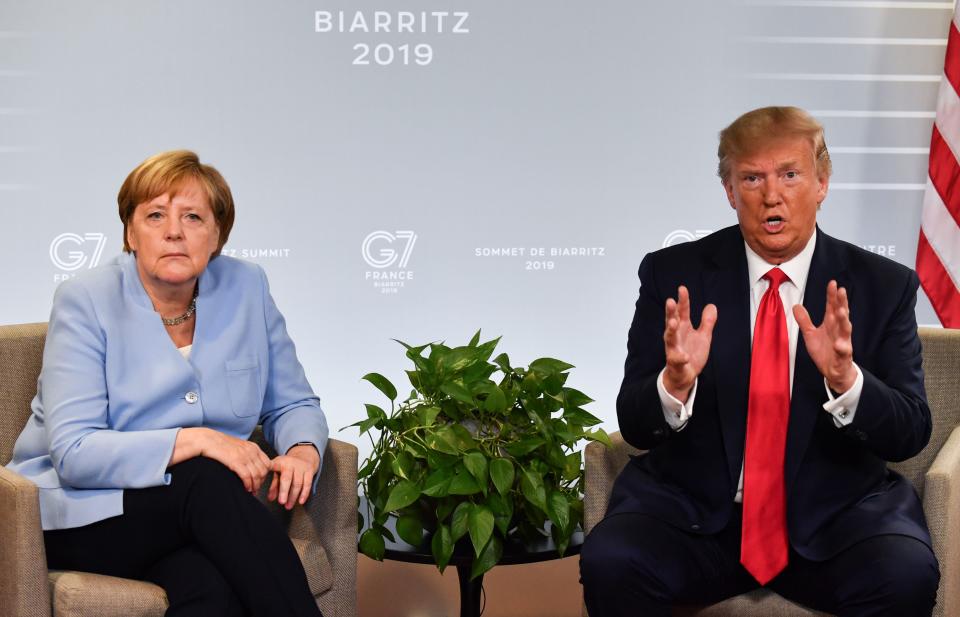US and German views on bilateral relationship at odds

There is a deep divide between US and German citizens when it comes to how they view the relationship between their two countries—with the Americans holding a much rosier view on bilateral relations.
A survey by the Pew Institute in Washington and Germany’s Körber Foundation found that north Americans are vastly more positive about Germany as a geopolitical partner than the other way round.
Based on responses from 1,000 people in Germany and 1,000 in the US, the researchers said 75% of Americans described the US-German relationship as good while nearly two-thirds of Germans described it as “bad” or “very bad.”
Only half of Germans surveyed want to see closer cooperation between Berlin and Washington—they feel deepening ties with France and Japan over the US is more important. Meanwhile, 70% of Americans would be happy to see stronger US-German ties.
The pessimistic German view of the US may not come as a surprise considering the somewhat frosty relationship between the German chancellor and the US president. Angela Merkel has spoken out on several occasions against Donald Trump’s protectionist policies. In her Harvard University commencement speech in May, she urged students to stand up against protectionism and nationalism, tear down “walls of ignorance,” and to “never describe lies as truth and truth as lies.” She did not mention Trump by name.
Berlin and Washington have been at loggerheads over a host of issues. To name a few: Germany pushed to keep the Iran nuclear deal alive, the US abandoned it; Germany is going ahead with the Nord Stream 2 gas pipeline from Russia despite US threats to impose sanctions on companies involved; Berlin has so far refused to ban Chinese telecoms giant Huawei from its 5G network auctions despite US insistence that the company is a security threat.
READ MORE: Germany not to ban Huawei from its 5G networks
Trump has also publicly berated Germany on many occasions for not contributing more to the NATO alliance since he took office, but Berlin is determined to decide for itself.
“Americans also see the US military presence in Germany as very important to American national security,“ the Pew survey notes. “Germans, for their part, see the two countries’ relationship as strained and place less importance on the American troop presence for their own country’s national security.”
Slight thaw in German perspectives
While only 34% of Germans have an upbeat view of the relationship between the US and Germany in 2019, that is still 10% more than in the 2018 survey, and a radical improvement on 2017, the year US president Donald Trump took office.
A July 2018 YouGov Poll found that German citizens thought Trump posed a greater threat to world security than Russian leader Vladimir Putin. To the question of which one of the two was the most competent leader, 56% of respondents said Putin.

 Yahoo Finance
Yahoo Finance 